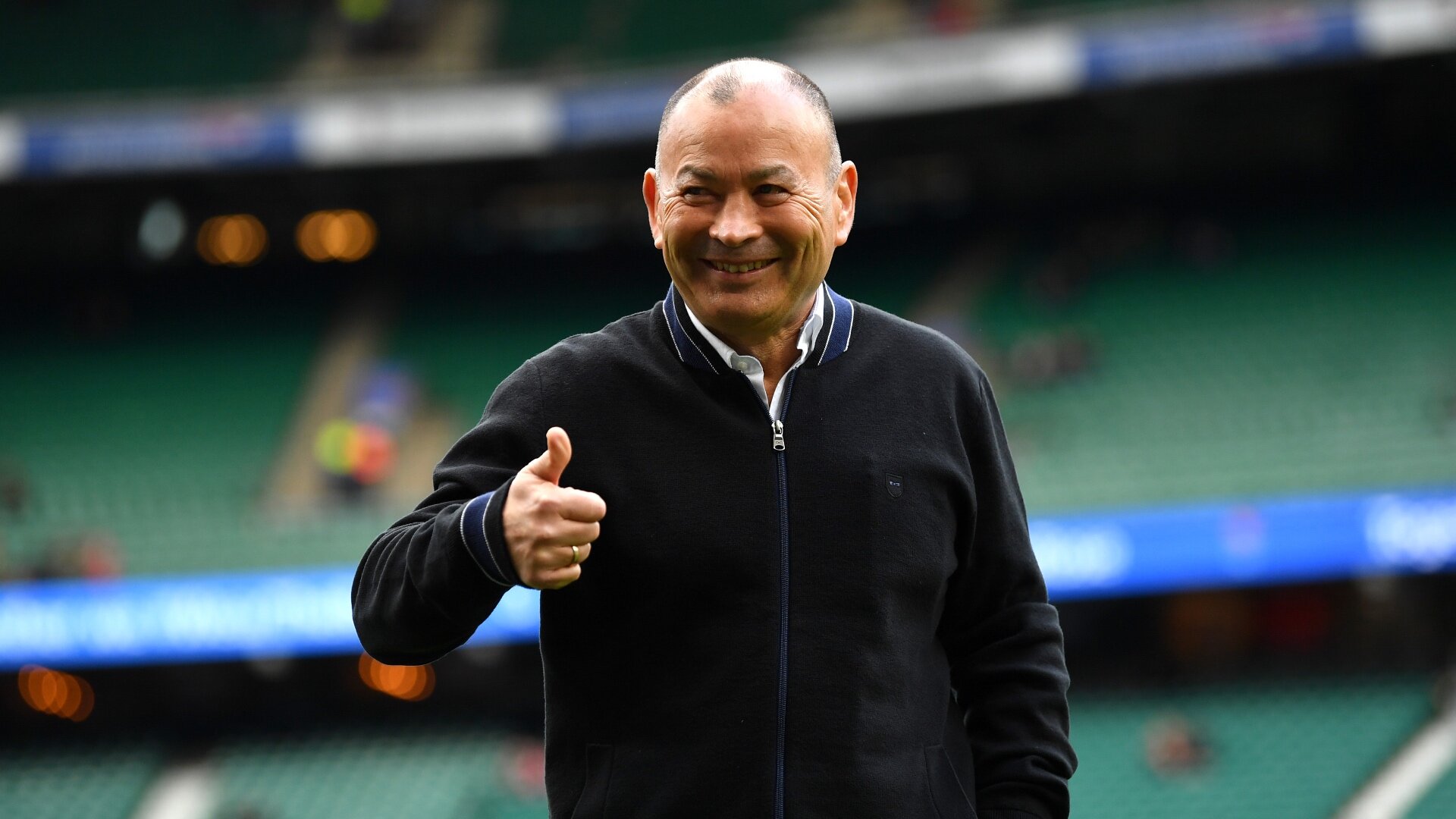Jones: The world domination reasons why he decided to stick with England

Eddie Jones has claimed England’s recent Six Nations form has restored his belief that he can make his team the best the world has ever seen.
The Australian has the highest win ratio – 78 per cent – in the history of England coaches, winning 42, drawing one and losing just eleven of his 54 outings in charge since succeeding Stuart Lancaster following the 2015 World Cup.
(Continue reading below…)
Big Jim and Goodey catch up with Darren Childs on The Rugby Pod to discuss the likelihood of the Gallagher Premiership season being resumed
Two of those defeats were of recent vintage, the World Cup final loss last November to South Africa in Yokohama and the Six Nations opener away to France.
However, what he saw in the weeks following the February 2 defeat in Paris – wins over Scotland, Ireland and Wales to secure the Triple Crown – convinced him he has what it takes to make England better than any side has ever been.
“That is what we want to achieve,” he said during a conference call from Japan after the RFU confirmed Jones has extended his contract and will coach England though to the 2023 World Cup in France.
“It’s an aspirational goal because you don’t play one game and you are the greatest team. But we want to aspire to be a team that everyone remembers. We have played some good rugby over the last four years and can play even better rugby in the next three years. That is the challenge ahead.
“Having done the four years I felt the project hasn’t been finished yet. There is still a lot of growth in the team and the last Six Nations, as I discussed previously, I wanted to make sure that I could still have an effect on the team, still improve the team.
“I think I can do that and therefore it is a good fit for me to continue because we have got a lot of growth left. We are still a relatively young side and I can still add to the growth of the team.
“At the end of the World Cup, you have got to make an assessment of whether you can continue to develop the team and whether as a coach you can be effective.
“Therefore the Six Nations for me was quite important. I wanted to make sure if I was going to continue I could have an effect on the team and I believe I can. That is the reason I have decided to continue and accepted the kind offer from the RFU.”
BREAKINGhttps://t.co/CplnOiiHdr
— RugbyPass (@RugbyPass) April 2, 2020
Jones remains in the dark as to when England’s next match will be, RFU CEO Bill Sweeney suggesting it won’t be until the end of April when a final decision is taken on whether the July tour to Japan can go ahead due to the coronavirus pandemic that led to the postponement of England’s last outing, the March 14 Six Nations trip to Italy.
Jones sounded like he was taking the scheduling uncertainty in his stride. “It comes back to the fact that it’s about controlling what you can control. Our problems are quite insignificant compared to the problems around the world so we have got to keep things in perspective.
“When we get the opportunity to play we want to play with passion, we want to play with pride and we want to give people something to enjoy and that has got to be our target. In the meantime, we have just got to play our roles in being good citizens and help support as much as we can.”
WATCH: Billy Vunipola chats to Jim Hamilton in the latest episode of The Lockdown, the new RugbyPass series

































































